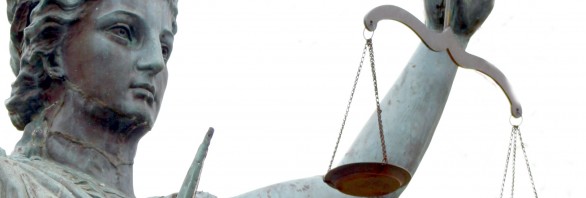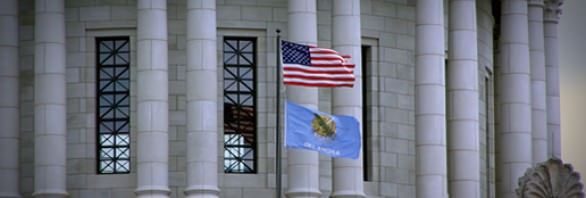Menu

- Mediation
- Arbitration
- Court Neutrals
- Online Dispute Resolution
- Technology
- Court Decisions
- More
- Legislation
- Healthcare
- Guest Posts
- John DeGroote
- John C. Fleming
- Rick Freeman
- Professor Peter Friedman
- Honorable W. Royal Furgeson, Jr.
- James M. Gaitis
- Laura A. Kaster
- Professor John Lande
- Philip J. Loree, Jr.
- Michael McIlwrath
- F. Peter Phillips
- Professor Alan Scott Rau
- Professor Thomas J. Stipanowich
- Professor S.I. Strong
- Richard Webb
- Glen M. Wilkerson
- International arbitration
- Regulation
- Sports and Entertainment
All articles tagged '"South Carolina"'
14 articles found
Wisconsin Federal Court Confirms Class Arbitration Award Ahead of SCOTUS Decision
By Beth Graham - December 11, 2017
As much of the nation eagerly anticipates a pending United States Supreme Court ruling regarding whether a collective action ban included in an employer’s arbitration agreement is lawful under the National Labor Relations Act, a Wisconsin federal court has decided to uphold a class arbitration award in a wage and hour case.
What the Numbers Tell Us About How State Courts Apply the Unconscionability Doctrine to Arbitration Agreements
By Beth Graham - July 24, 2014
Susan Landrum, Director of the Office of Academic Achievement at the Savannah Law School, has published Much Ado About Nothing?: What the Numbers Tell Us About How State Courts Apply the Unconscionability Doctrine to Arbitration Agreements, Marquette Law Review, Vol. 97, No. 3, 2014.
U.S. Supreme Court Vacates Oklahoma Supreme Court: FAA Statue Prevails over Oklahoma State
By Jeremy Clare - November 26, 2012
The U.S. Supreme Court vacated an Oklahoma Supreme Court decision because the decision ignored a basic tenet of the Federal Arbitration Act (“FAA”) and did not allow the arbitrator to rule on the validity of the contracts. Background In Nitro-Lift Technologies, L.L.C. v. Eddie Lee Howard, et al, 568 U.S. ___ (Nov. 26, 2012), a dispute arose between Nitro-Lift Technologies (“Nitro-Lift”) and two of its former employees, Eddie Lee Howard and
Fifth Circuit Reverses the Vacatur of a FINRA Award Because the Award was not Procured by Fraud and the Arbitrators did not Exceed Their Powers
By Victoria VanBuren - November 15, 2012
by Jeremy Clare The United States Court of Appeals for the Fifth Circuit reversed the vacatur of a FINRA Award because it disagreed with the district court’s finding that the award was procured by fraud, or in the alternative, that the arbitration panel exceeded its powers. Background In Morgan Keegan & Company, Inc., v. Garrett, et al, No. 11-20736 (5th Cir. Oct. 23, 2012), a group of eighteen investors (“Garrett”) brought a claim of statuto
U.S. District Court Denies Applications for Search Warrants for Electronic Communications Due to Over-Breadth
By Victoria VanBuren - November 5, 2012
by Jeremy Clare Magistrate Judge David Waxse of the United States District Court for the District of Kansas denied two applications for search warrants in which the government sought to gain emails and faxes from accounts used by an individual that allegedly used the accounts in an email spam campaign to defraud other individuals. Magistrate Judge Waxse denied the applications because the warrants, as proposed, violated the Fourth Amendment. In I
USADA Case against Lance Armstrong | Statute of Limitations
By Victoria VanBuren - October 22, 2012
by Jeremy Clare USADA is seeking the disqualification of all of Mr. Lance Armstrong’s competitive results from August 1, 1998 onward. According to Article 17 of the World Anti-Doping Code, the statute of limitations for an action brought against an athlete is eight years from the date that the alleged violation(s) occurred. However, USADA claimed that the statute of limitations was suspended because Mr. Armstrong concealed the violations. In its
USADA Case against Lance Armstrong | Evidence against Armstrong
By Victoria VanBuren - October 19, 2012
by Jeremy Clare The overall purpose of USADA’s Reasoned Decision was to present the evidence it gathered in order to justify the sanctions against Mr. Armstrong. The Reasoned Decision gives both, a detailed account and an extensive summary of the evidence. USADA had sworn statements from more than two dozen witnesses. The witnesses include fifteen professional cyclists and Armstrong’s former masseuse. Eleven of those cyclists were members of Arms
USADA Case against Lance Armstrong | Standard of Proof and Means of Proof
By Victoria VanBuren - October 17, 2012
by Jeremy Clare Standard of Proof According to Article 3.1 of the World Anti-Doping Code (the Code), USADA bore the burden of establishing Mr. Armstrong’s violations of the Code. “This standard of proof in all cases is greater than a mere balance of probability but less than proof beyond a reasonable doubt.” USADA noted in the Reasoned Decision that the standard is comparable to the standard applied to other cases of professional misconduct. In t
USADA Case against Lance Armstrong | Charges Brought against Armstrong
By Victoria VanBuren - October 16, 2012
by Jeremy Clare Writers of this blog have been posting about USADA’s case against Lance Armstrong for several months. During the next days, we will be summarizing various portions of USADA’s Reasoned Decision. We begin with the charges USADA brought against Mr. Armstrong. Charges USADA listed the following six separate charges brought against Mr. Armstrong: (1) Use and/or attempted use of prohibited substances and/or methods including EPO, blood
Southern District of New York Holds that Arbitrators Did Not Manifestly Disregard the Law
By Victoria VanBuren - September 24, 2012
by Jeremy Clare The United States District Court for the Southern District of New York confirmed an arbitration award and granted attorney’s fees in favor the defendant because the plaintiffs’ claims were meritless and lacked any proper purpose. Background In DigiTelCom, Ltd., et al., v. Tele2 Sverige AB, No. 12-CV-3253 (S.D. N.Y. July 25, 2012), two Russian telecommunications companies, DigiTelCom, Ltd. (“DTC”) and Tele2 Sverige AB (“Tele2”), we
12
About Disputing
Disputing is published by Karl Bayer, a dispute resolution expert based in Austin, Texas. Articles published on Disputing aim to provide original insight and commentary around issues related to arbitration, mediation and the alternative dispute resolution industry.
To learn more about Karl and his team, or to schedule a mediation or arbitration with Karl’s live scheduling calendar, visit www.karlbayer.com.
Recent Posts
Featured Posts
Search
Legal Research
© 2025, Karl Bayer. All rights reserved. Privacy Policy








